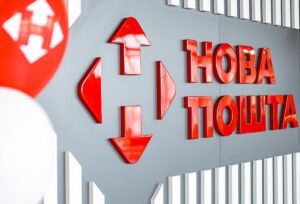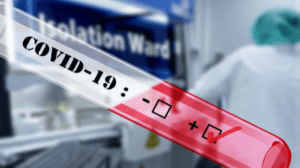
Nova Poshta has launched an automated sorting terminal in Dnipro, investments in which amounted to EUR 28.5 million, including a EUR 13 million loan from the EUR opean Bank for Reconstruction and Development, the company’s press service reported.
According to its data, the terminal in Dnipro is the second largest facility of the company after the Kyiv one: its capacity is 26,000 parcels per hour. At the same time, after the introduction of a new sorting line in April 2022, the figure will increase to 36,000 parcels per hour.
“The launch of a new automated terminal in Dnipro will allow us to double the processing of parcels in the region. In addition, it will also create 500 new jobs and new business opportunities that will be able to increase their sales,” CEO of Nova Poshta Oleksandr Bulba said.
The new terminal with an area of 18,000 square meters is equipped with the equipment of the Dutch company MHS Global and the Lithuanian one Equinox.
In addition, the cargo part of the terminal is equipped with robotic carts manufactured by SBR for the transportation of goods. Also, 29 conveyors were installed for loading parcels into freight transport, 14 for unloading.
The Nova Poshta group of companies includes, in particular, Nova Poshta, NP Logistic, NovaPay and Nova Poshta Global companies. The company’s network has about 10,000 branches throughout Ukraine, and the number of shipments in 2021 alone exceeded 430 million. In 2021, the company transferred UAH 6.4 billion in taxes and fees to the country’s budget.

Ukraine has registered 43,778 new cases of COVID-19, as well as 9,497 recoveries and 174 deaths in the past 24 hours, the Ukrainian Health Ministry said on Friday. “Over the past day, February 3, Ukraine has recorded 43,778 new cases of COVID-19, including 4,381 children and 873 medical workers, while 75,304 persons have been vaccinated for COVID-19, including 23,482 who received the first dose, 28,444 who received the second dose, 695 who received an additional dose, and 22,683 who received a booster shot. In the past 24 hours, 4,328 persons have been hospitalized, 174 have died, and 9,497 have recovered,” the ministry said on Telegram.
There were 39,620 new contagions in Ukraine the day before.
Since the beginning of the pandemic, Ukraine has seen a total of 4,213,675 cases, including 3,660,351 recoveries and 100,983 deaths.
As many as 15,420,207 people have been vaccinated for COVID-19 in Ukraine to date.

Ukraine and Turkey have signed an agreement to expand the joint production of unmanned aerial vehicles (drones), Ukrainian President Volodymyr Zelensky said.
“Today we’ve paid special attention to cooperation in the aviation and defense industries. This is one of the locomotives of our strategic partnership. Our goal is the implementation of specific projects to create joint ventures, exchange of experience, exchange of technologies. An agreement has been signed today that will expand the production of unmanned aerial vehicles,” Zelensky said at a joint briefing with Turkish President Recep Tayyip Erdogan in Kyiv.
As reported, Oleksiy Arestovych, the speaker of the Trilateral Contact Group (TCG) on resolving the situation in Donbas, in December 2021 announced that the Ukrainian-Turkish plant, which is being built in the town of Vasylkiv, Kyiv region, will produce reactive heavy drones of the ANKA type – the next generation of drones after Bayraktar, as well as promising Ukrainian drones.
“In particular, we can talk about jet drones, which are interceptors. That is, they are capable of operating against air targets, against other drones. Even against manned aircraft. They will have Ukrainian engines and the rest of Turkish avionics: a hull, etc.,” he said.
According to Arestovych, the plant in Vasylkiv should already produce the first products at the end of 2022.

Prime Minister of Ukraine Denys Shmyhal and Turkish Trade Minister Mehmet Mus signed an agreement on a free trade zone between the countries.
The agreement was signed in Kyiv on Thursday in the presence of Ukrainian President Volodymyr Zelensky and Turkish President Recep Tayyip Erdogan following the results of negotiations between the parties.
It is expected that the agreement on a Free trade area between the countries will bring an additional 2% of GDP annually.

Ukraine’s revenue from export of grain crops in 2021 amounted to $12.3 billion, the largest trading partners were China, which imported $2.55 billion, as well as Egypt ($1.39 billion) and Turkey ($0.92 billion), the Institute of Agrarian Economics (IAE) reported on its website on Thursday.
“2021 was characterized by the further strengthening of the position of China, which in 2020 for the first time took the top among 10 largest importers of Ukrainian grain. In four years, starting from 2018, this country has increased its grain purchases from Ukraine almost five times, to $2.55 billion. At the same time, China’s share in the value of domestic grain exports increased from 19.7% in 2020 to 20.7% in 2021,” the IAE said, citing expert Bohdan Dukhnitsky.
According to the IAE, last year Egypt increased imports of Ukrainian grains by 24%, from $1.12 billion to $1.37 billion, but its share of their total exports decreased from 11.9% to 11.2%.
“Turkey, which in 2020 ranked only sixth in the top 10, moved up to the third spot last year, increasing the value of purchases of Ukrainian grain to $0.92 billion. In addition, in 2021, there were changes in the top 10 largest buyers of grain from Ukraine: Iran and Pakistan pushed South Korea and Bangladesh out of the top 10,” the expert said in the IAE report.
Other major grain importers from Ukraine were Indonesia with $750 million, Spain with $645 million, the Netherlands with $552 million, Iran with $533 million, Pakistan with $355 million, Libya with $342 million and Tunisia with $306 million.
The IAE said that in total, these 10 countries had dominated in the value of all grain purchases in Ukraine in 2021 (their share was more than two thirds).
As reported, since the beginning of 2021/22 (July-June) and as of February 2, Ukraine exported 38.63 million tonnes of grain and leguminous crops (31.6% more compared to the same date of the previous year), including 17.08 million tonnes of wheat (30.4% more), 15.64 million tonnes of corn (32.6% more), 5.48 million tonnes of barley (38.7% more), 0.16 million tons rye (92 times more), 63,800 tonnes of flour (27.0% less).